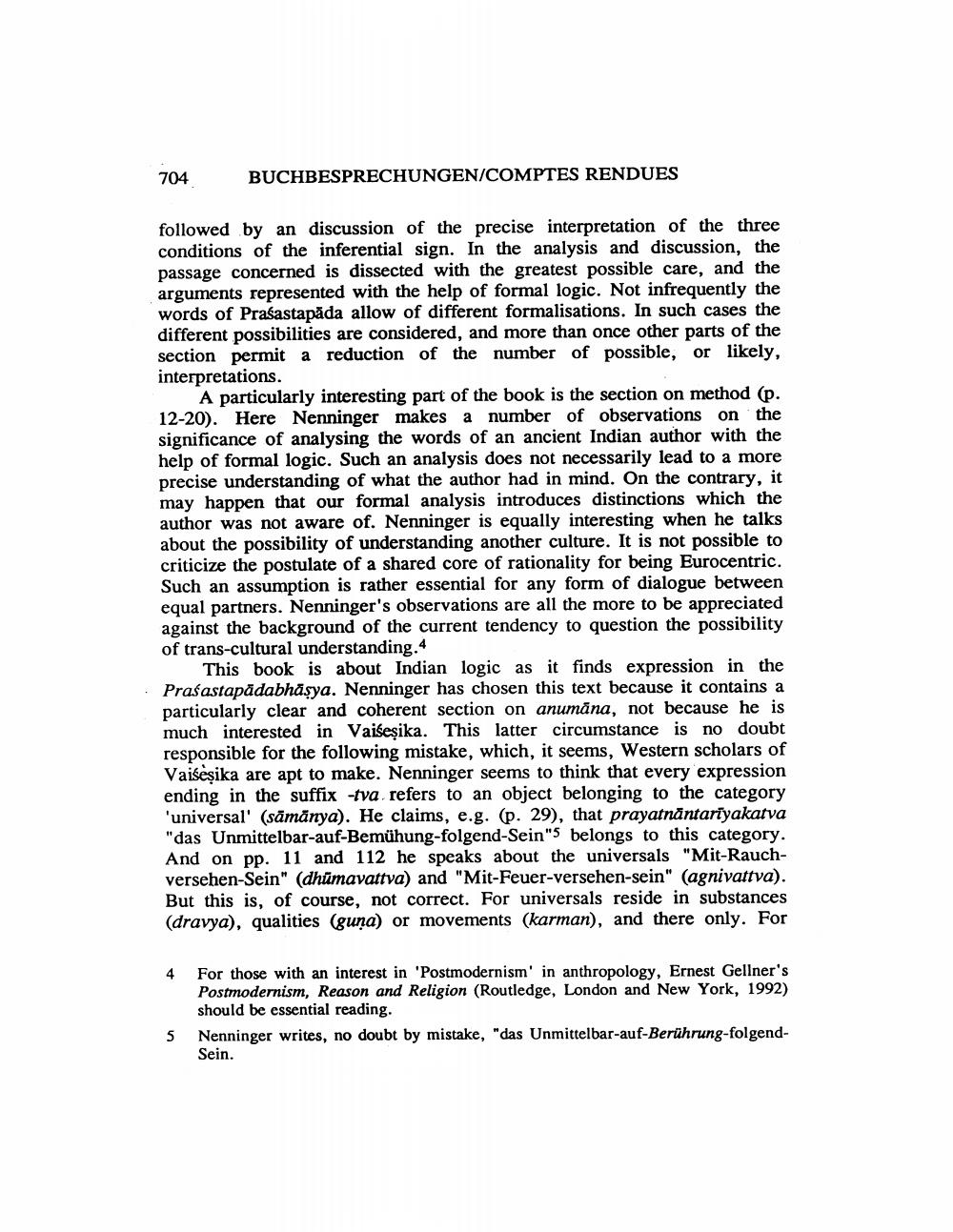Book Title: Buchbesprechungen Comptes Rendus Author(s): Johannes Bronkhorst Publisher: Johannes Bronkhorst View full book textPage 2
________________ 704 BUCHBESPRECHUNGEN/COMPTES RENDUES followed by an discussion of the precise interpretation of the three conditions of the inferential sign. In the analysis and discussion, the passage concerned is dissected with the greatest possible care, and the arguments represented with the help of formal logic. Not infrequently the words of Prasastapāda allow of different formalisations. In such cases the different possibilities are considered, and more than once other parts of the section permit a reduction of the number of possible, or likely, interpretations. A particularly interesting part of the book is the section on method (p. 12-20). Here Nenninger makes a number of observations on the significance of analysing the words of an ancient Indian author with the help of formal logic. Such an analysis does not necessarily lead to a more precise understanding of what the author had in mind. On the contrary, it may happen that our formal analysis introduces distinctions which the author was not aware of. Nenninger is equally interesting when he talks about the possibility of understanding another culture. It is not possible to criticize the postulate of a shared core of rationality for being Eurocentric. Such an assumption is rather essential for any form of dialogue between equal partners. Nenninger's observations are all the more to be appreciated against the background of the current tendency to question the possibility of trans-cultural understanding.* This book is about Indian logic as it finds expression in the Prasastapādabhāṣya. Nenninger has chosen this text because it contains a particularly clear and coherent section on anumana, not because he is much interested in Vaiseșika. This latter circumstance is no doubt responsible for the following mistake, which, it seems, Western scholars of Vaiseşika are apt to make. Nenninger seems to think that every expression ending in the suffix -rva refers to an object belonging to the category 'universal' (sāmānya). He claims, e.g. (p. 29), that prayatnāntariyakatva "das Unmittelbar-auf-Bemühung-folgend-Sein"5 belongs to this category. And on pp. 11 and 112 he speaks about the universals "Mit-Rauchverschen-Sein" (dhamavattva) and "Mit-Feuer-versehen-sein" (agnivattva). But this is, of course, not correct. For universals reside in substances (dravya), qualities (guna) or movements (karman), and there only. For 4 For those with an interest in 'Postmodernism' in anthropology, Ernest Gellner's Postmodernism, Reason and Religion (Routledge, London and New York, 1992) should be essential reading. Nenninger writes, no doubt by mistake, "das Unmittelbar-auf-Berührung-folgendSein. 5Page Navigation
1 2 3 4 5
